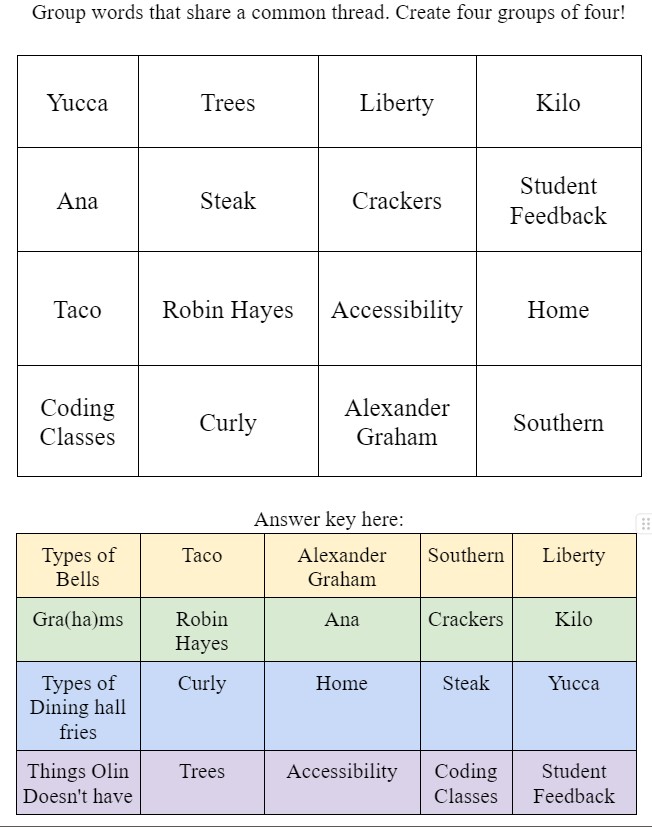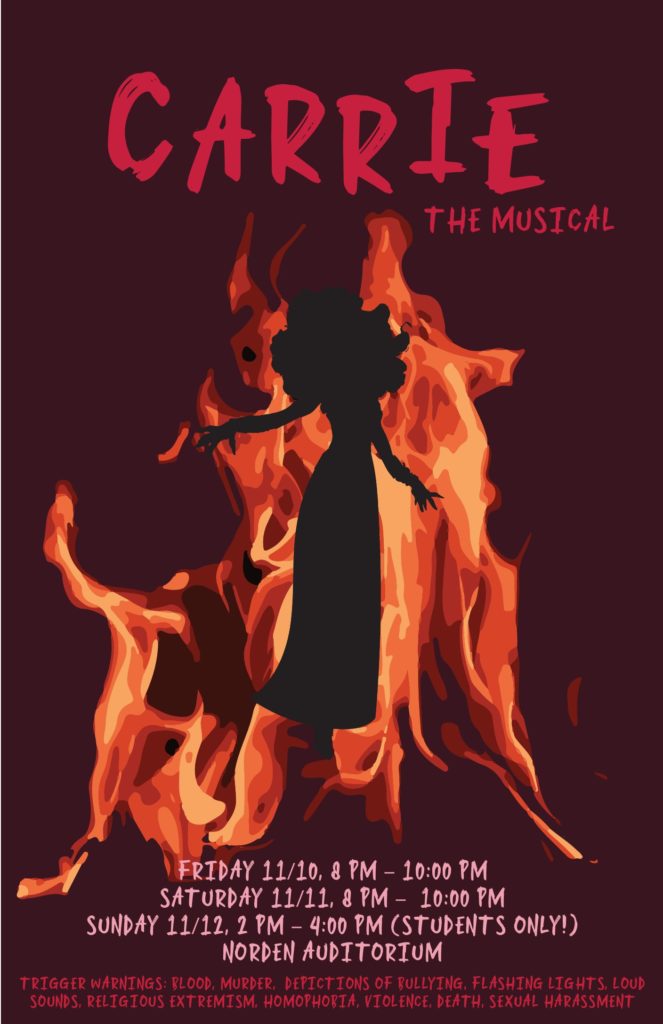A suitemate is sitting in the common area, eating some snacks and working on their laptop. Another suite member enters, looking to recharge their social battery. Other suitemates in their room hear the camaraderie and sit alongside everyone else to work, relax, or play. As a group, they decide to visit a suite down the hall that’s hosting a coffee shop later that night. The shared space created a sense of responsibility for ourselves and each other. This was the safe space where Olin culture was born, where Olin ideas were cultivated.
The classroom is where the seed is planted – our collective first year at Olin taught us about the importance of failure, and not to be ashamed of it. The classroom planted the seed about codesign and setting our own goals. These were things we had not been exposed to before, and it was our first time holding these ideas in our hands and molding them into our own lives.
However, where the classroom was the seed, the idea had to have a place to grow. The idea needs to exist not only inside the classroom, but also needs a place to exist outside of the classroom where a student can try it for themselves in the real world. And what better place to apply these skills in the small town of Needham than our own dorms? Our own tiny test run of fostering a large community relationship.
The dorms were a catalyst for change. The spaces that allowed for gathering generated crazy new ideas and brought together niche passions and exploded into something that defined Olin today. It was the place where students could take power into their own hands and become the creators of a community; a community born from the principles taught to us.
The students were the ones who took the honor code and decided to give it power. To us, it meant something important when we left a five dollar bill right where we found it instead of taking it. It was important that we were the ones watching out for each other and taking care of people who got too drunk. It was meaningful that we were lifting each other up.
Adding a seventh room into the originally six person suites was a solution created to address the admission of an unexpectedly large number of incoming freshmen. The idea was to split the suite common area in half and turn the other half into a new room. It was said to be a temporary solution that would be taken down in around 4 years, but recently it seems like the walls are here to stay.
For the administration and staff making these decisions, it may have presented as a clever solution, where perhaps students may grow accustomed to the seventh room and allow for the school to enroll more students.
Was it a financial decision? Most definitely, as any organization would have to consider the financial impact of an investment like this. Perhaps this solution was the best financial investment that would ultimately benefit the state of our school.
The administration rarely ever steps into the dorms. The higher ups don’t know the complex inner workings of the Olin dorms and the culture we’ve cultivated, not only to have fun but to hold each other accountable. There is no way for the administration to fully understand what this seemingly small change in the suites would have on an entire school.
Now, when a student seeks social interaction, they will opt to enter another suitemate’s room, rather than sit in the lounge. Because of this, communication gets stifled or passed around in potentially harmful ways. Oftentimes, it is not out of bad intention, but it happens naturally due to the configuration of the space – it is hard to communicate openly when everything is so closed off. It’s too easy to go straight to your room without running into any of your suitemates, therefore making it easier to isolate yourself from them.
Living in the suite no longer feels like a mini community working together. It just feels like 7 single rooms with an awkward hallway in between.
Due to the reduced area, it’s almost impossible to have all (now) seven members in the common area at one time. Some people might have to stand or sit on the floor. It was organic to see all members of the suite in the common area before, and now it’s rare to see any people at all.
Another side effect of the reduced area is that items start migrating outside of the suite space into the hallways. It’s too crowded and cramped to fit all of the furniture in the common space, along with a shoe rack and 3 trash cans. Naturally, it made sense for some suites to start moving a shoe rack or a couple of trash cans or a bike outside. It opened up the space meant for community and reduced the clutter.
As a result, the residential hall assistants, cleaning staff, and others immediately brought attention to the items in the hallway, stating that it was not up to fire code, or that spaces were harder to navigate or clean. Warnings would be put on items that were in the hallways, stating that if it is not cleared out then it will be taken. These warnings existed for a short period of time, but eventually, items would be simply removed by the hallways without further notice. Staff and students had been given permission to remove or take any belongings that were in the hallway.
Under Respect Others in Olin’s Honor code, it states as follows: “I will be patient with and understanding of fellow community members, and considerate of their inherent dignity and personal property.” This is something that Oliners have been proud to uphold for years, as we have created a culture of trust. If someone had forgotten their laptop or dropped a five dollar bill, it would not disappear. It would remain right where they last saw it, or someone would send an email stating that they have it.
Almost overnight, this culture of trust vanished. It was no longer safe to leave your things out for even a second. This was an unintended consequence of the seventh room.
As one of the few students remaining who has lived in both a six room suite and a seventh room suite, I can say through first hand experience that this seventh room has made a lasting negative impact on the Olin experience.
….On the recent events
I wrote this piece last year to talk about the consequences of what happens when people in power change the spaces they do not reside in. I aimed to commemorate Olin culture and share some of my favorite memories while highlighting what a huge difference a small change can make. I have also seen Olin students take matters into their own hands and mold the spaces in the dorms to fit their needs with every coming challenge. This section is now an expression of my feelings and frustrations of the changes that are being made, and the trust that has been broken.
I have learned from my professors at Olin that changes to a space should be initiated by those who occupy it. “Nothing about us without us.” Making a decision of bringing in Babson students into the dorms should involve the students who occupy the dorms, no matter how wonderful the Babson students are, no matter how careful we are about the process, no matter how much we want to improve our relationship with them. I applaud the staff and faculty who have developed a fully thought out plan to make this integration as smooth as possible. I am disappointed and frustrated with the decision to exclude students from the conversation. Just like the 7th suite wall, (which was supposed to be temporary) we have been left out of the conversation. Ever since COVID, we have been struggling with a lack of housing in the fall semester, and now we are blindsided with the introduction of Babson students into our dorms in the spring, forcing students to move and rearrange to accommodate.
I have also noticed that Oliners also are starting to feel unsafe and uncomfortable with what feels like the administration’s blatant disregard to the students’ wellbeing. Especially when we had a conversation about this a year ago and the majority of the student population communicated their strong disapproval of this decision. At this point, this is no longer an issue about the changing of dorm culture, it’s also about breaking trust and being misleading with the guise of a false partnership between administration and students.
I wonder how this continuous dismissal of students’ wellbeing will affect the future of this institution. “In 2020-21, the Olin Fund represented 46% percent of the total philanthropic dollars raised for the College” and I have noticed recent talks of alumni who are hesitant to donate in light of these critical changes that are being made without student voices at the discussion tables.
I want to highlight all the intricacies of how dismissing the student body will impact the future of this institution. It’s hard to put a number on how much student relations with their administration correlates with the “success” of a college, but at the end of the day, I truly believe that cultivating communication and transparency is essential for the health and wellbeing of Olin College.
If financial stability is the administration’s goal, then I would like for students to have a seat at the table to help achieve that goal while preserving the parts of what makes Olin unique. It would go both ways, as the students would be better informed on the administration’s decisions. I can suggest that we start looking for data that proves these decisions will be detrimental in the long run. We can pitch alternatives. We can prove that the Olin student body is an asset, not a liability. We can practice what Olin preaches: community mindedness, problem solving, and teamwork.
If there’s one thing left for me to wish upon this school before I leave, I wish for the administration to hear our voices and help us rebuild this trust that has been broken.


